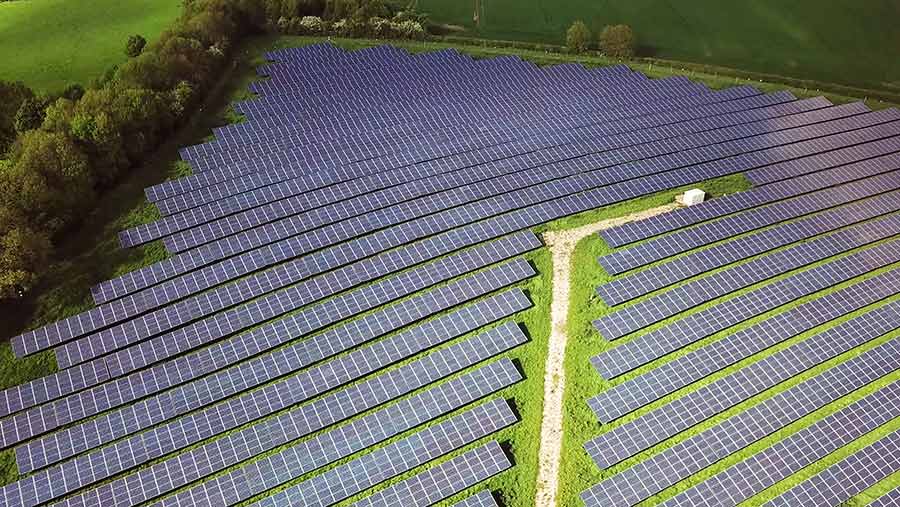Opinion: Solar has a role in optimising land use policy
 © WADII/Adobe Stock
© WADII/Adobe Stock My grandfather used to grow potatoes on our farm – hard to believe, given that our medium clay is so riddled with flints it used to be harvested to build walls.
That was 70 years ago. His spuds were hand-planted, hand-lifted and sold to a local market. You wouldn’t dream of it today.
Margins are far too tight to risk highly intensive farming operations on marginal land.
See also: Minister considers blocks to solar farm construction
The fields on which my grandfather grew spuds were Grade 3b. They still are. I have a soil classification map and a tenancy agreement proclaiming this mediocrity.
Ranil Jayawardena, the Defra minister (at the time of writing), is reportedly considering extending the grades of land covered by the term “best and most versatile” to include 3b, supposedly to combat solar developments expanding at the expense of food production.
A land agent with the finest red cords would struggle to sell this Hertfordshire sod as “best”. I’ve seen gravel pits with less stone.
As for “most versatile” – cereals, environmental stewardship and hare coursing are the extent of its versatility.
But now, in the midst of an energy crisis, we are told the government wants to allow fracking but outlaw solar on all farmland classified Grade 1 to Grade 3b. Go figure…
Farming has always carried a higher level of risk than most industries. The vagaries of climate and the impact that weather has on local and global markets makes for unpredictable supply.
But the government is compounding an already exponential level of risk, with inconsistent policies on land use and a rudderless Environmental Land Management project.
Understandably, the government wishes to shore up the UKs food self-sufficiency, forever mindful that democracy is only ever three meals away from anarchy.
Farmers cannot be packhorses carrying the risk of government indecision. Our business decisions need clear sight of government farm and environment policies.
Defra will neither confirm nor deny its anti-solar stance. But it has reaffirmed that government recognises the need to preserve the most productive arable land as best as possible.
The irony is that far more productive potato ground has been lost in the past three years to “non-productive” farming activities than in the previous half a century.
The tapering down of Basic Payment Scheme support has seen many farmers and landowners who would formerly rent land to potato growers opt for large-scale mid-tier stewardship agreements as a way of managing risk and guaranteeing economic viability.
I have no objection to solar being a part of our landscape, in moderation.
But this is not a binary choice of food or fuel. It is a three-legged stool, the third being the vital need to secure the environment and its biodiversity.
Our country requires security in the short, medium and long terms. Energy security is as important as food security. Given a choice, I would prefer to buy grains from Canada than gas from Russia.
All five of the UK’s nuclear power plants are reaching the end of their operational lives. With new reactors taking upwards of 20 years to build, we must consider all viable energy options.
The government’s aim to decarbonise electricity generation by 2035 suggests that a less prescriptive attitude to the UK’s land assets is required.

